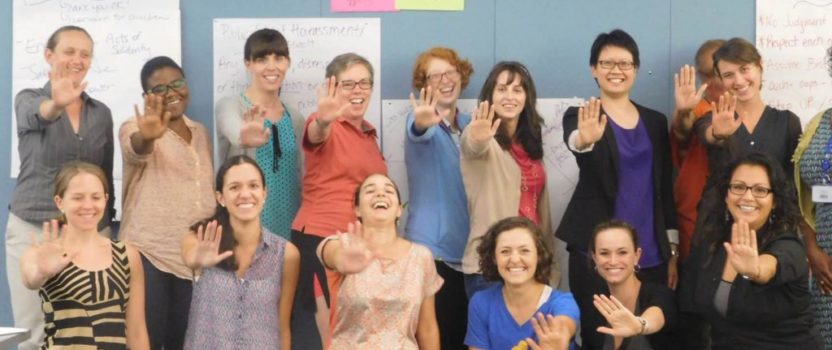Women & Bicycles Add Tools To Their Anti-Harassment Toolbox
Last month, a group of women-identifying cyclists from the Washington Area Bicyclist Association (WABA) gathered in the basement of the Petworth public library to attend CASS’s street harassment workshop.
While cycling can be fun and empowering, it can also be frustrating and even down right scary.
CASS’s workshop introduced prevention and empowerment strategies that could be used by people who experience sexual harassment in public, both on and off bicycles.
Here are 4 verbal methods you can use to engage the perpetrator:
- Look at the person and say “Hello”. Give them a respectful “hello” or “how are you?”This method is great for three reasons. First, It’s proactive. Second, it firmly establishes you as an agent in the space, instead of an object moving through it. Third, it opens up the possibility that there could be a community here that includes everyone. Instead of wresting power away from each other in this back and forth struggle, it opens up the possibility that we could share it, or even build it together.
- Be assertive and make a direct command. “Leave me alone!” “I’m not interested.” “Don’t talk to me that way.” Be sure to breathe and act calm and confident even if you don’t feel that way. When you deliver these responses, you want to do so with a strong voice, strong body language, and eye contact if you feel comfortable doing so. No “please” or “um”.
- Name the behavior – LOUDLY—so that everyone can hear you. “You’ve been following me for six blocks! Stop following me!” This response is good because it holds the harasser responsible for their behavior and it demands that the behavior stop.
- Add body language to your verbal response. Put up a “stop sign”. Put your hand in front of your chest, palm out, arm extended and look at the harasser and say “stop right there.”
We acknowledge that when you’re on a bike, harassment can happen very quickly. Either you’re zooming by the harasser or they are zooming by you. This can make it hard to respond. However, the more you practice these responses, the more quickly you’ll be able to deploy them when the time comes.
And most importantly, in all cases, you should choose the response that makes you feel the most safe and in control.
For more information on CASS’s Trainings and Workshops visit our website or contact us at workshops@collectiveactiondc.org.

